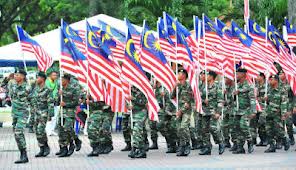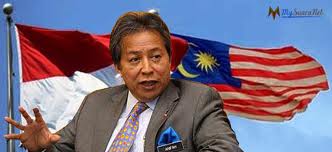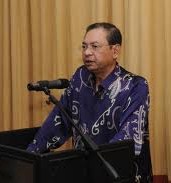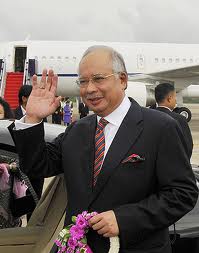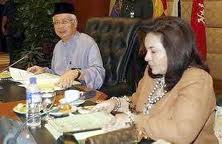August 31, 2012
Geo-Politics of US-China Rivalry and South China Sea
 by B A Hamzah
by B A Hamzah
The great powers in Asia are redefining their strategic interests as they interact with each other and other states in the Asia-Pacific region. Key players are the United States, China, Japan and India. Russia under Putin is slowly but surely regaining its influence.
The background of a renewed US-China rivalry is well documented. However, with regard to the South China Sea, the rivalry became more intense following Obama administration decision to return to the region (2010) and more recently (2012) by its policy to redeploy troops to the region following the decision to disengage from Iraq and Afghanistan.
The US policy to pivot to Asia Pacific is a deliberate attempt to rebalance its worldwide military deployment with an eye on China. In seeking greater access to the region, the US has sent more marines to Darwin on rotation basis; it has conducted exercises with some ASEAN states in the South China Sea without due regard for the volatile military environment.
worldwide military deployment with an eye on China. In seeking greater access to the region, the US has sent more marines to Darwin on rotation basis; it has conducted exercises with some ASEAN states in the South China Sea without due regard for the volatile military environment.
Washington has also agreed to station some littoral combat ships in Singapore, presumably to protect its interests in the South China Sea and in the Straits of Malacca. This policy is very much in line with President Barrak Obama’s speech of reassurance at the Australian Parliament (November 2011) that America remains a Pacific power. The world will judge its actions: whether it is going to be a pacific power, a benign power or a destructive power.
US new enemy in the Asia Pacific Region: China?
Despite denials to the contrary by various policy makers, every step that the US has undertaken bears the mark of a deliberate policy to contain China’s rise. Kissinger, in his book (China, 2011) elaborates why China fears encirclement.
In the long- run, it will be difficult for the US to manage China’s rise in ways that do not diminish US interests in the region. The following reasons are among the reasons offered:
•China views US in a decline mode. The US in undergoing a phase in strategic decline in terms of ability to influence international events. Various writers gave alluded to this inevitability. Johan Galtung, who forecast the breakup of the Soviet Union, has predicted in 2004 that the US would fall apart in 2020. Norman Davies’ statement that “All states and nations, however great, bloom for a season and are replaced” is prophetic and applicable to any power, including the US.
•China views geo-economics and domestic politics are at odds with US expansive foreign policy.
•The US strategic overreach has economic cost. Today the US is the most indebted nation in the world estimated at US $ 16 trillion and despite quantitative exercises(QE) over the years, it has failed to stop the economic rot, which may now undermine Obama’s chances of retaining the Presidency this November.
•The US economic malaise has caused Washington to cut its military spending by more than $100 billion over a decade. This cut will affect the US ability to project power beyond its shores.
•The unfavourable global economic situation has a debilitating impact on the US economy and limits its power projection capability.
•Geography favours China. The South China Sea waters wash China’s southern shores; Hawaii, the home port of the 7th Fleet is 8,000 nautical miles away. All military operations have to factor in distance and geography. China is not Iraq, Afghanistan, Yemen, or Pakistan.
US-Sino Rivalry in the South China Sea
The US-China rivalry has caused temperatures to rise in the South China Sea. 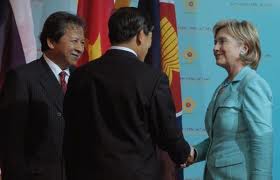 The Nation of Bangkok warns in a recent editorial that: “If the current tension continues in South China Sea, especially between the Philippines and China, it could lead to an all-out war. This is not an alarmist’s warning but a real concern. With poisonous rhetoric and growing tension, there is a possibility that conflicting parties would cross the line. This could be a result of miscalculation.”
The Nation of Bangkok warns in a recent editorial that: “If the current tension continues in South China Sea, especially between the Philippines and China, it could lead to an all-out war. This is not an alarmist’s warning but a real concern. With poisonous rhetoric and growing tension, there is a possibility that conflicting parties would cross the line. This could be a result of miscalculation.”
This editorial refers to the impasse over the Scarborough Shoal. While the impasse would not lead to an “all out-war”, the likelihood of a miscalculation is scary. In the opinion of the Nation, it (war) “can be the most dangerous game in town.”
China has been accused of stoking tensions on the South China Sea.It has received bashing over the Scarborough Shoal standoff and over the establishment of a military garrison and formation of Sansha City on Woody Island.
The hype over Sansha City and the military garrison is unnecessary. The City was formalised in 2007. The Peoples’ Liberation Army (PLA) occupied the Paracels archipelago since 1974 and since then it has troops on the islands.
Many have accused China of hidden hands during the 45th ASEAN Foreign 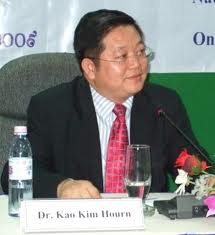 Ministers Meeting at Phnom Penh. When the Ministers failed to issue a Joint Communiqué, the blame was put on China .
Ministers Meeting at Phnom Penh. When the Ministers failed to issue a Joint Communiqué, the blame was put on China .
No one denies that China has been assertive in the South China Sea since it removed the South Vietnamese troops from the Paracels (including the Woody Island) on January 19. 1974. In April 1988, it fought a brief naval war with Vietnam and in 1995, it occupied the Mischief Reef.
Like China, Vietnam, Malaysia and the Philippines have garrisoned their territories in the South China Sea. Taiwan has the biggest military garrison on Itu Aba. Brunei is the only claimant that does not send troops to occupy any island or rock feature.
Incident at Scarborough in April 2012
On April 10, 2012, Manila sent its largest warship, BRP Gregorio del Pilar (former US Coast Guard Cutter USS Hamilton) to arrest Chinese fishermen at the Scarborough Shoal for “breaching Philippines sovereignty and maritime jurisdiction”- an euphemism for illegal entry, illegal fishing and poaching.
(former US Coast Guard Cutter USS Hamilton) to arrest Chinese fishermen at the Scarborough Shoal for “breaching Philippines sovereignty and maritime jurisdiction”- an euphemism for illegal entry, illegal fishing and poaching.
Two Chinese civilian vessels from the Bureau of Fisheries Administration rushed to the scene just in time to stop the seizure of eight fishing vessels; the catch was, however, impounded.Of course, this was not the first arrest of Chinese fishing vessels for illegal fishing and poaching in the area. For example, in July 1997 the PI Navy arrested 21 Chinese fishermen for illegal entry in the vicinity of the Scarborough Shoal.
Manila has based its claim of the Scarborough Shoal on “effective occupation and effective jurisdiction since independence”. Manila has discounted proximity as the basis of its claim. On April 2012, the Department of Foreign Affairs admits that its sovereignty and jurisdiction over the Scarborough Shoal (Bajo de Monsiloc) is NOT premised on proximity or “the fact that the rocks are within its 200 nautical miles or continental shelf under UNCLOS.”
ASEAN must not allow the indecisiveness over a phrase to undermine the peaceful process that ASEAN has assiduously developed over the years with China. The Code of Conduct (COC) negotiation should not become hostage to some inflexible internal politics. ASEAN has more pressing larger geo-strategic issues to worry.
Driven by strategic considerations and the prospects for maritime resources, all claimants have been expanding their military and enforcement capabilities in the disputed South China Sea. Buoyed by nationalist sentiments, some claimants have sought outside help. The presence of external forces could undermine the military power equilibrium in the region. In that sense, US-China rivalry may complicate issues
Without some confidence- building mechanisms like the proposed COC, Incidents-at- Sea Agreements or Joint Development Projects between the claimants, the maritime security situation in the South China Sea may take a turn for the worse. So, claimant states bordering the South China Sea must seek fresh solutions to their divergent interests.
Scarborough Shoal & ASEAN Unity
 ASEAN is divided on the Scarborough Shoal. Writing in the Wall Street Journal, Ian Storey criticised ASEAN’s failure to close ranks over the Scarborough Shoal incident. He pointed out in the article that ASEAN member states were divided due “to differing national interests, including the value they place on their relationships with China.” This has resulted in a lack of cohesion and inaction in dealing with China in the South China Sea.
ASEAN is divided on the Scarborough Shoal. Writing in the Wall Street Journal, Ian Storey criticised ASEAN’s failure to close ranks over the Scarborough Shoal incident. He pointed out in the article that ASEAN member states were divided due “to differing national interests, including the value they place on their relationships with China.” This has resulted in a lack of cohesion and inaction in dealing with China in the South China Sea.
Singling out China for the impasse does not explain the entire story. Before May 2010, the security situation in the South China Sea was tolerable, despite China’s assertive policy.
In 1995, for example, following the Mischief Incident, Manila and Beijing signed a code of conduct pledging to solve their dispute by peaceful means. A year later (November 1996), President Fidel Ramos of the Philippines agreed with President Jiang Zemin that both parties would settle their disputes in the South China Sea, including the Scarborough Shoal via joint development.
The tipping point was June 2010 in Singapore. Robert Gates’ statement in Singapore in June 2010 and Hillary Clinton’s reaffirmation of the US policy of returning to the region after a long period of neglect at the ASEAN Regional Forum in Hanoi on July 23, 2010 introduced a new element in regional security dynamics.
Beijing views the US return to the Asia Pacific and military engagement in the South China Sea as containment. In response to the US containment policy, China has become more defensive. Beijing has started to upgrade its military capabilities in the South China Sea to oppose the US military presence.
US-China rivalry and ASEAN
The US-China rivalry has caused some states to take sides. This action will have a long-term consequence on the power equilibrium in Southeast Asia. The impasse at Scarborough has ramifications beyond China and the Philippines; it has brought non-claimant parties into the fray. The conflict will more difficult to resolve with the involvement of the others who are using the South China Sea conflict to undermine China’s security interests.
Claimant states can become pawns in the US-China rivalry. The rivalry can ultimately undermine ASEAN security and cohesiveness if the matter is not handled properly.
It would appear that the 45th ASEAN Foreign Ministers Meeting at Phnom Penh has put ASEAN’s credibility on line. Some say ASEAN has lost its centrality, others think ASEAN will become irrelevant after the Foreign Ministers failed to issue a Joint Communiqué, the first in forty-five years. Many have ridiculed ASEAN’s credibility.
So what if ASEAN cannot coble a consensus? Does it mean ASEAN will close shop after it failed to agree on a communiqué? Is the communiqué so vital that without it, the entire ASEAN cooperative effort will fall apart?
It is puzzling how critics could ignore the record of ASEAN since its founding in 1967, including forging a community by 2015. Everything must be seen in the proper context. A small window makes sense only in the context of the overall architecture . Looking at the Scarborough Shoal without the benefit of the larger geo-strategic design and landscape including the US-China rivalry would distort the story.
ASEAN is not a single-issue organisation. The Scarborough Shoal impasse between China and the Philippines will resolve itself and it will not dent ASEAN unity. Both Philippine and China will patch up soon if third parties stop instigating.
ASEAN has weathered worst storms in its existence and it gets stronger after each crisis. The Philippines -Malaysia relations was bedeviled by the former claim to part of Sabah soon as Malaysia was formed in 1963.The lingering claim has not caused ASEAN to collapse.
In 1968, for example, critics cried foul when Singapore hanged two Indonesian marines for the bombing of the MacDonald House in 1965.The nationalists in Indonesia demanded retribution. Diplomatic relations were ruffled.
In 1991, the Philippines recalled its Ambassador from Singapore for hanging a maid who confessed to the crime. When situation cooled down, diplomatic relations resumed. I hope that the recall of the Cambodian Ambassador from Manila in August 2012 will not permanently damage diplomatic relations between the two ASEAN states.
In 1979, Vietnam reoccupied Amboyna Cay that Malaysia included in its 1979 continental shelf map. In the same year, the Philippines troops also reclaimed Commodore Reef in the South China Sea from Malaysia.
ASEAN has overcome more serious territorial disputes between its neighbours. Indonesia and Malaysia went to the International Court of Justice to determine who own Sipadan and Ligitan. The ICJ in 2002 awarded the two islands to Malaysia.
Singapore and Malaysia took their territorial disputes for litigation twice. In September 2003, for example, Malaysia sought provisional measures from the International Tribunal on Law of the Sea (ITLOS) at Hamburg on Singapore’s land reclamation in and around the Straits of Johor. In May 2008, the ICJ rendered a decision on Pedra Branca (Pulau Batu Putih). When the Court found that Singapore has sovereignty over Pedra Branca, it brought to a closure a problem that has been a thorn in the relations between both states.
In February 1979, Thailand and Malaysia agreed to jointly develop a disputed area in the Gulf of Thailand; similarly, in 1992, Vietnam and Malaysia signed a Memorandum of Understanding to jointly exploit for mineral resources in an overlapping maritime area.
In 2009, Malaysia and Vietnam made a joint submission to the United Nations Commission on the Limits of the Continental Shelf for their continental shelf beyond 200 nautical miles in the South China Sea. Both joint development agreements have withstood time and now all parties are reaping the returns from their commercial ventures.
Because territories are sacrosanct, many would have thought that claimant parties in the South China Sea would come to blows. Malaysia maintains cordial relations with the Philippines despite the Sabah claim and the occupation of the Commodore Reef. Likewise, Malaysia and Vietnam have opted for a joint development project and agreed to shelve their territorial disputes in the South China Sea.
The Scarborough Shoal incident is insignificant compared with the territorial problems. The Scarborough Shoal impasse is between China and the Philippines and it could be amicably resolved. In 1996, in Manila President Ramos and Jang Zemin agreed to shelve their dispute in favour of joint development.
In 1992, Manila inked the ASEAN Declaration on the South China Sea and gave the undertaking that it would resolve all sovereignty and jurisdictional issues in the South China Sea by peaceful means, without resort to force. In 2005, China and the Philippines (later Vietnam) agreed to undertake a short-lived Joint Maritime Seismic Survey (JMSU) in the Palawan maritime area. One authority on the South China Sea even hailed the Arroyo’s presidency as the “golden era” in Manila-Beijing relations.
Failure to craft a Joint Communiqué is equally insignificant if we view ASEAN in the larger geo-strategic and geo-economic context. In the light of a new consensus on the six- point- principles announced by the ASEAN Foreign Ministers following the Phnom Penh impasse, we should close the Cambodian chapter and move forward.
Few have recalled how ASEAN had overcome the difficult days. One of the most difficult times in ASEAN history was in 1986 when the ASEAN Heads of States summoned their moral strength to attend the third ASEAN summit at Manila after a lapse of ten years. Credit for reinvigorating the Bangkok declaration at Manila must go in particular to President Corazon Aquino for her efforts to get Asean back on its rail. She bent backward to please many ASEAN leaders; she agreed to limited control of the airspace over Manila during the summit. She permitted some states to send warships to Manila Bay in case something went wrong during the Summit.
Looking back, the 1986 Summit at Manila was ASEAN’s turning point; it renewed the spirit of regionalism. And, it was possible partly because of President Corazon’s trust in regionalism.
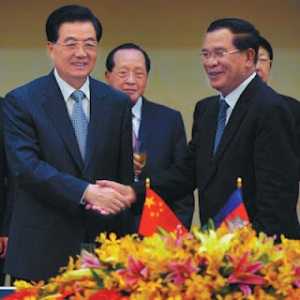
Let us hope that the 21st ASEAN Summit in November 2012 at Phnom Penh will not get bogged down with another insignificant event. Cambodian Prime Minister Samdech Hun Sen could follow in the footsteps of the late President Corazon Aquino and put ASEAN back on track.
Concluding remarks
New geo-economic dynamics in the Asia Pacific Region present opportunities for Southeast Asian countries to redefine their relationship with China and the US. However, it will take a far greater display of pragmatism and realism on both sides.
Factors hindering closer relations include: domestic politics, military power in- equilibrium in the Asia Pacific region (complicated by the recent US policy to rebalance its forces to contain China); Chinese single-handedness to convert the South China Sea into an internal lake similar to what the US did in the 19th Century in the Caribbean.
Also likely to be hostage to the US-China rivalry is the deliberate policy to confuse jurisdictional issue (like territorial claims) with rights under international law to use the sea (like the freedom of navigation). Topping it all is competing nationalism. Unbridled, it can be a spoiler in maintaining law and order in the South China Sea.
While I remain bullish on ASEAN as a regional security and economic organisation, the US-China rivalry that comes on the heel of a Pax Americana in decline may spell danger; history is replete with stories of powers in decline misbehaving. As it struggles to retain dominance, as a power in transition Pax Americana may engage in dangerous policies to prove critics wrong. This danger may manifest in the South China Sea. What begins as a bilateral issue may metamorphose into larger than a big power rivalry when rival powers engage in proxy wars.
One of the most likely proxies in the conflict is the Philippines, which has been putting pressure on the US to honour the 1951 Mutual Defense Treaty between the Republic of the Philippines and the United States of America. Thus far, the US has been wisely resisting pressure from Manila to invoke the Treaty.
It is imperative for ASEAN, especially states with overlapping claims in the South China Sea, to anticipate the consequences of US-China rivalry. ASEAN must not allow this rivalry to undermine its unity.
 criticism of Dr Mahathir Mohamad’s “devil you know” remarks, Pakatan Rakyat can counter the BN’s war of ideas by describing to Malaysians what sort of government we will get post-BN.
criticism of Dr Mahathir Mohamad’s “devil you know” remarks, Pakatan Rakyat can counter the BN’s war of ideas by describing to Malaysians what sort of government we will get post-BN. Hindraf leaders are correct when they ask the BN and PR to explain their strategies to alleviate cross-generational poverty and its associated social ills that have plagued certain segments of the Indian Malaysian community. I dare say that there are also equally serious pockets of poverty in Sabah and Sarawak.
Hindraf leaders are correct when they ask the BN and PR to explain their strategies to alleviate cross-generational poverty and its associated social ills that have plagued certain segments of the Indian Malaysian community. I dare say that there are also equally serious pockets of poverty in Sabah and Sarawak. economy. There is no doubt that we cannot continue to rely on Petronas to subsidise everything from Proton to sugar. We must get productivity up without spending our children’s legacy.
economy. There is no doubt that we cannot continue to rely on Petronas to subsidise everything from Proton to sugar. We must get productivity up without spending our children’s legacy. Next comes the question of BN legacy issues. Pakatan has gone to town listing a raft of BN wrong-doings. From independent power-producers to the judiciary; how will Pakatan overhaul the system to make sure that the goose is not killed in the process of reform?
Next comes the question of BN legacy issues. Pakatan has gone to town listing a raft of BN wrong-doings. From independent power-producers to the judiciary; how will Pakatan overhaul the system to make sure that the goose is not killed in the process of reform?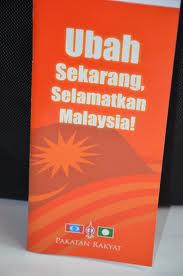 Pakatan has highlighted this and a lack of local level democracy like local elections as part of it public manifesto, the Buku Jingga.
Pakatan has highlighted this and a lack of local level democracy like local elections as part of it public manifesto, the Buku Jingga.











